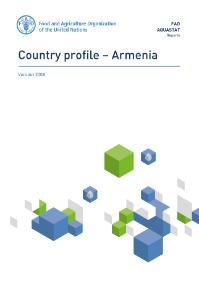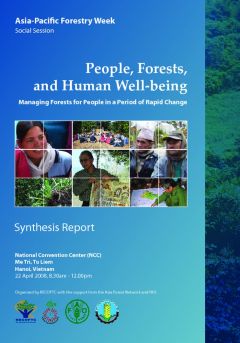Focal point
Location
The Food and Agriculture Organization of the United Nations leads international efforts to defeat hunger. Serving both developed and developing countries, FAO acts as a neutral forum where all nations meet as equals to negotiate agreements and debate policy. FAO is also a source of knowledge and information. We help developing countries and countries in transition modernize and improve agriculture, forestry and fisheries practices and ensure good nutrition for all. Since our founding in 1945, we have focused special attention on developing rural areas, home to 70 percent of the world's poor and hungry people.
Members:
Resources
Displaying 3056 - 3060 of 5074Country profile – Armenia
This country profile describes the state of the water resources and water use, as well as the state of agricultural water management in Armenia. The aim of this report is to describe the particularities of the country and the problems met in the development of the water resources, and irrigation in particular. Irrigation trends, existing policies and legislation to water use in agriculture, possible treaties and agreements between countries as well as prospects for water management in agriculture are presented, as described in literature.
Legal empowerment in practice: Using legal tools to secure land rights in Africa
In many parts of Africa, legal services organisations have developed innovative ways for using legal processes to help disadvantaged groups have more secure land rights. Their approaches, tools and methods vary widely – from legal literacy training to paralegals programmes, from participatory methodologies to help local groups register their lands or negotiate with government or the private sector through to legal representation and strategic use of public interest litigation.
People, Forests, and Human Well-being: Managing Forests for People in a Period of Rapid Change
Under present and foreseeable economic and social trends in the Asia-Pacific region, can we achieve sustainable forest management and better realize the potential of forests and forestry to contribute to improved human well-being?
Terra firma and shared cooperation: how land frameworks facilitate pro-food security public-private partnerships
Public-Private Partnerships broadly identify a spectrum of complex legal arrangements between the public and the private sector to provide goods or services within a country. The objective of the PPP is share control, risks, and rewards of a set of fixed assets between a private enterprise and a “public unit”, which is normally a national government. A common thread that runs throughout all PPPs is some degree of private participation intertwined with the provision of goods and services traditionally handled by the public domain.
Children’s Property and Inheritance Rights in the Context of HIV and AIDS – A Documentation of Children’s Experiences in Zambia and Kenya
Based on field research conducted by two grassroots organizations, CINDI-Kitwe in Zambia and GROOTS Kenya, to map and document cases of property grabbing from children, in particular those who became orphans due to AIDS. Includes problem analysis and study objectives; presenting children’s experiences in Zambia and in Kenya; conclusions and lessons learned.









